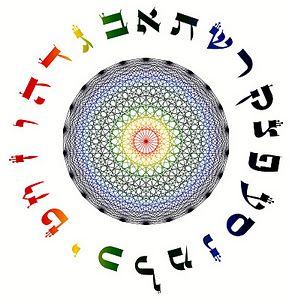Ariel Ben Avraham – Ecclesiastes: The illusion of vanity and the reality of love (XXXIV)
“Don’t curse the king, no, not in your thoughts; and don’t curse the rich in your bedroom, for a bird of the sky may carry your voice, and that which has wings may tell the matter.” (Ecclesiastes 10:20)
Thus we understand that we must cherish our most precious and valuable beliefs and principles (the “king” and the “rich”), for these are the blessings by which we achieve the goodness God wants for us. We must not despise them, either with our actions or with our words or thoughts. We know that by our ways and actions we portray and express ourselves; and for them, sooner or later, we will be accountable.
“Send forth your bread on the face of the waters, for in the multitude of the days you will find it. Give a portion to seven, and even to eight, for you don’t know what evil is on the earth. If the thick clouds are full of rain, on the earth they empty themselves. And if a tree falls in the south or to the north, the place where the tree falls, there it is.”
(11:1-3)
Our Sages relate to water in many ways, hence we can understand the first verse in diverse forms. The context here is a life that encompasses a “multitude of days” in which we live to find the goodness that we are commanded to share with others. Here, we take “the waters” as the thoughts that we direct by discernment, understanding and knowledge with goodness as their ruling principle.
Thus we share it with as many as possible to keep away the negative ways and trends of vanities and illusions, as “the evil on the earth”. This factual statement is followed also by natural facts, such as the rain over the earth and the trees that fall on it.
In a deeper meaning, and following the same context, our thoughts (“the waters”) eventually turn into concrete actions (“the earth”), where the former “empty themselves”. The trees symbolize life standing in the material world to which we give a direction, either positive or negative, where we live and stay when we die.
“He who is observing the wind does not sow, and who is looking on the thick clouds does not reap.” (11:4)
We are warned time and again that we reap what we sow, and inaction leads nowhere. Wind and clouds can be understood here also as the whims and desires of material fantasies and illusions that don’t have true profit or benefit, and from which we can’t sow or reap.
“As you don’t know what is the way of the wind, nor how the bones grow in the womb of her who is with child; even so you don’t know the work of God who does all. In the morning sow your seed, and in the evening don’t withhold your hand; for you don’t know which will prosper, whether this or that, or whether they both will be equally good. Sweet also is the light, and good for the eyes to see the sun.” (11:5-7)
Our ignorance extends from our own unawareness of the effects of ego’s fantasies and illusions to the ways of nature and the ways God directs His creation. Hence we have to do what is right and proper in all our endeavors without selfish reservations, and share our goodness the best way we can, without expectations or manipulations.
Goodness knows its ways, and the ends of its qualities. As long as we direct goodness in our own personal ways, it may not be as good as it is by itself. We have said that light is an abstraction of goodness, and we contemplate on its sweetness and kindness, as we are pleased by the radiance of the sun that fills every open space.
- Ariel Ben Avraham
- Kochav Yaakov, Safed, northern Galilee, Israel
- Ariel Ben Avraham (f. Zapata) was born in Cartagena, Colombia in 1958. After studying Cultural Anthropology in Bogotá moved to Chicago in 1984 where he worked as a television writer, reporter and producer for 20 years. In the 1990’s he produced video documentaries related to art, music, history and culture such as “Latin American Trails: Guatemala” distributed by Facets.org. Most of his life he studied ancient spiritual traditions and mysticism of major religions, understanding the mystic experience as the individual means to connect with the Creator of all. Since 2004 he studies and writes about Jewish mysticism and spirituality mainly derived from the Chassidic tradition, and the practical philosophy of the teachings of Jewish mystic sages. The book “God’s Love” is the compilation of many years studying and learning Jewish mysticism. The messages of his book are part of the content, exercises and processes of a series of seminars, lectures and retreats that he facilitates in Israel










